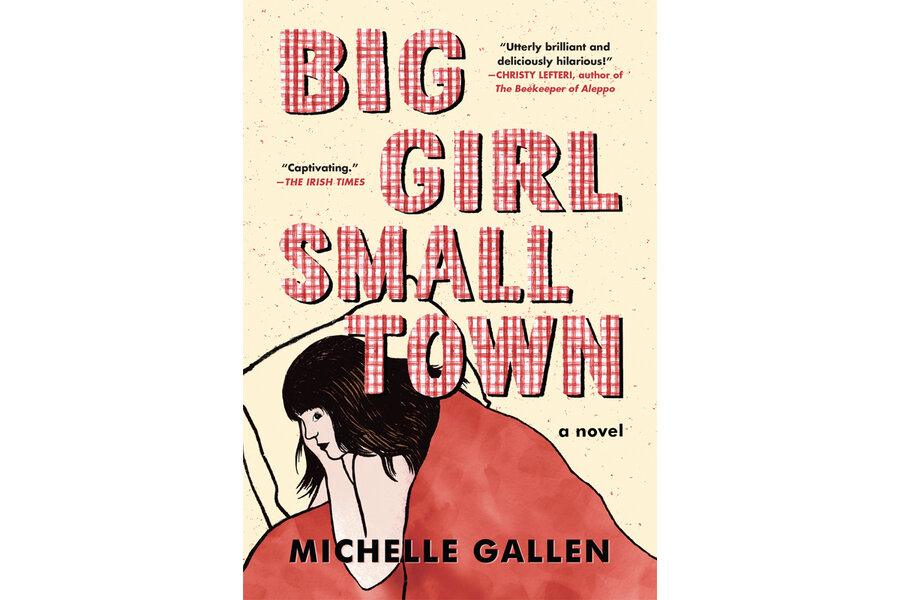‘Big Girl, Small Town’ marks the small victories of everyday life
Loading...
“Not all heroes wear capes,” goes the expression. Some simply persevere despite daunting circumstances and meet each day with quiet dignity.
Majella O’Neill is one of those heroes. The narrator of Michelle Gallen’s debut novel “Big Girl, Small Town,” Majella tends to her daily responsibilities with dedication and a dry sense of Irish humor that make for a delightful story.
The book covers just one week in the small fictional border town of Aghybogey in Northern Ireland. It’s only a few years after the sectarian violence of “the troubles” has been resolved, and the years of fighting have left a pall over the area that no one can escape.
Majella lives with her alcoholic mother, whose health has deteriorated so much that she requires constant care. And Majella’s father disappeared years ago – not too long after her uncle was killed while making a bomb for the Irish Republican Army. She doesn’t know what happened to her father, but she pines for him daily.
The story begins as Majella learns that her granny on her father’s side has been murdered. The news causes a stir in the town, prompting comments that Majella can’t escape while working her shift at the local chip shop, A Salt and Battered! The shop is the kind of place where most everyone in town passes through at some point. When they do, they trade in details of everyone else’s personal business. It’s just that kind of town.
This might all sound quite bleak, but it’s actually quite the opposite, thanks to Majella’s characterization. Against this gray backdrop, she perseveres with a dogged sense of decency, eventually achieving more than most everyone else in town. It’s impossible not to cheer for her.
Though never specifically named or diagnosed, it’s hinted that Majella is on the autism spectrum. As a result, she’s endured years of teasing from her peers. But like everything else in her life, she put her head down and pressed on. A strong student, she successfully graduated from high school. But her next step never appeared, so now she passes her days at the chip shop.
However, it’s far from a dead end. Townspeople appear throughout the story as colorful supporting characters in the daily drama. Each has their own backstory, and Majella observes them all with a keen but silent eye from her post behind the shop counter. Marty, Majella’s co-worker, accepts and even appreciates Majella, quirks and all. He may be the closest thing she has to a friend.
In a book that begins with a murder and concludes with the reading of the will, it might seem odd to say that nothing much happens with the plot in between those points. And it’s true that there’s no grand apotheosis: The townspeople tend to their daily lives, and Majella sticks to her routines. But the slow, mundane pace is one of the book’s greatest strengths. It allows time to observe and to appreciate, to mark the small victories. There may be no other novel where the purchase of a new duvet takes on such significance and leaves the reader cheering for Majella’s growing confidence.
Much of the book is written in the vernacular, and phonetically spelled out; those unfamiliar with the Irish dialect might find it helpful to read aloud. Readers should also be aware that much of the book’s language is coarse, and some of the events described are quite difficult.
But it is against this unvarnished backdrop that glimmers of kindness shine brightest, and small steps of progress go the farthest. In the midst of despair, every good thing is all the more precious. Majella recalls her father telling her, “You’re an O’Neill. Part of the noblest clan in Ireland. We were once the kings ann queens a Ulster.”
No doubt Majella would make her ancestors proud.








